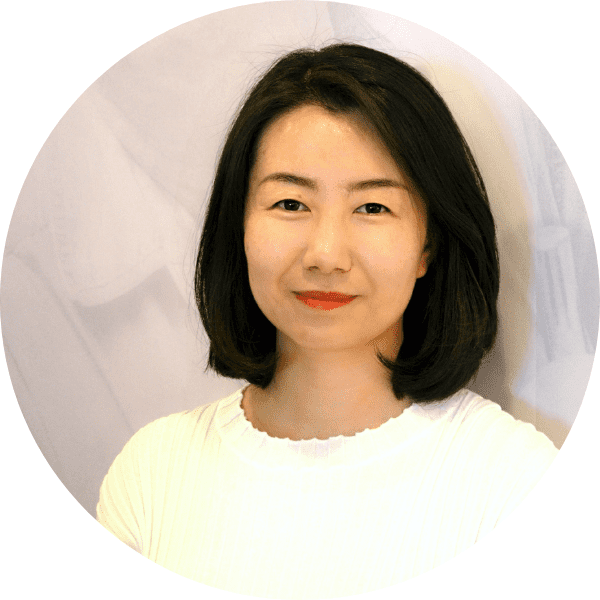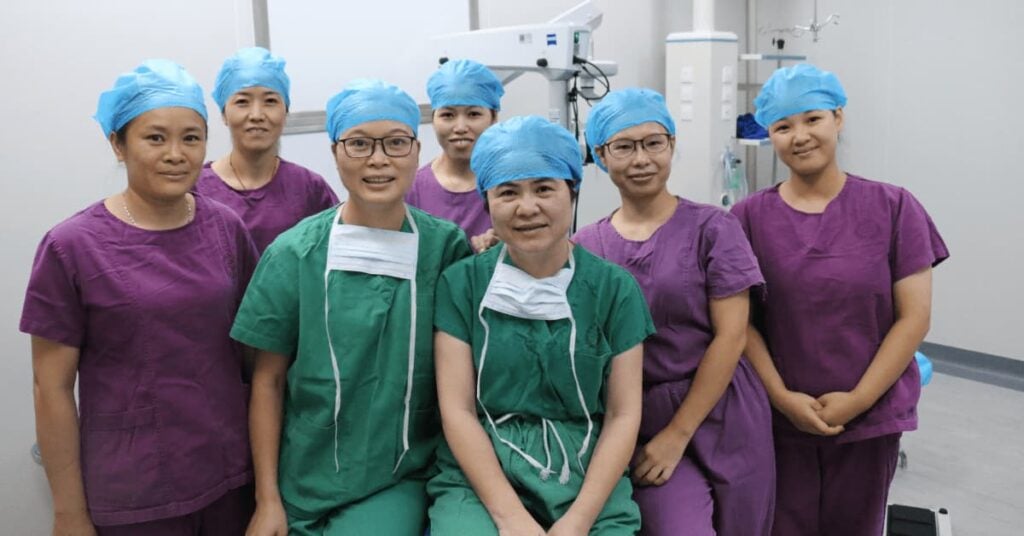International Women’s Day recognizes and celebrates the social, economic, cultural, and political achievements of women. But it is also a day to acknowledge and address the disparities women face in every aspect of life. As one of the leading global organizations advocating for gender equity in eye health, International Women’s Day is especially significant for The Fred Hollows Foundation in advocating and raising awareness for women’s eye health and equality globally.
Women are 1.3 times more likely to be blind than men, meaning 55% of people who are vision impaired worldwide are women. Currently, there are 23.9 million women or girls in the world who are blind and 163 million who have vision impairment.
China has the highest burden of avoidable blindness in the world, accounting for 20% of the global total. Eye health of women and girls in rural minority areas is of increasing concern. Taking The Foundation’s project in Guangxi as an example, women are at higher risk of avoidable blindness in rural Guangxi, where there are about 527,000 people with eye diseases, of which about 55% are women and girls.
Women in rural areas often have limited knowledge or access to information about eye health. Also, women find it difficult to access services compared to men. Poverty, women’s low social status and patriarchy are among the key factors for the underutilization of eye care services amongst women. Traditionally, women are seen as primary caregivers for their household which means that they must prioritize chores and their family members’ well-being over their own. It can also be harder for rural women to travel because of family responsibilities or for cultural reasons.
It is important to recognize that gender-related inequities in accessing eye health care are systematic. First, we need to address the structural issues that cause gender inequality and challenge historical and structural practices that disadvantage women. We need to find long-term solutions and ensure gender sensitive practices and programming to create sustainable change, not only for women’s access to eye health, but for the eye health workforce and partners as well. This is why The Fred Hollows Foundation adopts a gender mainstreaming approach which places women and girls firmly at the center of our programming, service delivery, partnerships and global advocacy work.
Since 1998, The Fred Hollows Foundation in China has been working to improve women’s access to eye care services to close the gender gap. The Foundation’s programs have served more than 5 million people by supporting the provision of screening services, sight-saving interventions and medical training. Over this time, more than 100 eye health facilities have been built.
In 2018, The Fred Hollows Foundation launched its first Gender Focused Comprehensive Eye Care Model Project in Guangxi Province. By working with partners, The Foundation’s project in Guangxi has made great achievements in raising awareness about gender equity and has been recognized by county and provincial partners, as well as the Provincial Women’s Federation.
To further build on this success in Guangxi, The Foundation is launching a new Gender Equity & Inclusion Eye Health Project in five provinces in central and western China and will collaborate with National and Provincial Women’s Federation in selected provinces. This project aims to strengthen gender equity and inclusion in eye health by increasing awareness of eye health of women and girls and the availability and access of eye care services by implementing the World Health Organization’s health system strengthening strategy.
Health systems strengthening is at the heart of The Foundation’s work. We believe that eye care needs to be included in national strategic health plans and development policies, health financing structures, and health workforce planning. The Foundation works to ensure local, provincial and national partners play a leading role in designing and implementing change aimed at strengthening their health system. To achieve this, we build local health workforce capacity, engage local government departments and empower partner hospitals to mainstream gender equity and inclusion into eye health services and management.
The project also involves training and skills development for Women’s Federation staff across provincial, city, county, township and village levels. The Women’s Federation is a key partner to uphold women’s rights and interests, and to promote equality between women and men. Trained staff and community health workers will incorporate gender equity and inclusion eye health education into their routine field work and continuously provide primary eye care support for the community, especially women and girls. Staff will also be able to identify and refer women and girls who need eye care services for timely treatment, as well as mobilize and educate families to support women and girl’s eye health. We believe that training and empowering the local community is the key to sustainable change and to promoting gender equity and inclusion from the ground up.
Findings from the first Gender Focused Comprehensive Eye Care Model Project in Guangxi Province found that 94% of the Primary Level staff and 87% of the Tertiary Level staff did not know there was an association between gender and eye health prior to the training. After the training, the staff acknowledge that there needs to be more health promotion around women’s eye health, and that gender stereotypes are a key factor to women not receiving treatment or having an increased risk of eye disease.
“I have learned why there is gender related eye health, and the Women’s Federation can disseminate the information well and serve women.”
– Women’s Federation Tertiary-Level Staff
Health system strengthening and gender mainstreaming initiatives, such as integrating eye care into the overall health strategy and scaling up eye care within national health services, are essential to improving the health of women and communities as well as the long-term development of the country. Investing in the eye health needs of the population is one of the least expensive and high impact interventions that governments, private sector, and international development community can make to provide a positive economic return, a stronger health system and stronger national economies. If more people are given access to affordable and quality eye care, then more people are given the opportunity to contribute to the economic growth of their countries.
Improving eye health for women and girls contribute directly and indirectly to achieving many Sustainable Development Goals, including reducing poverty, gender equality, education attainment and overall quality of life and wellbeing. The Foundation has multiple gender-equity-focused projects throughout Asia and the Asia-Pacific region. We welcome corporate partners who are interested in incorporating gender and health into their ESG/CSR programs to get in touch with us.


















